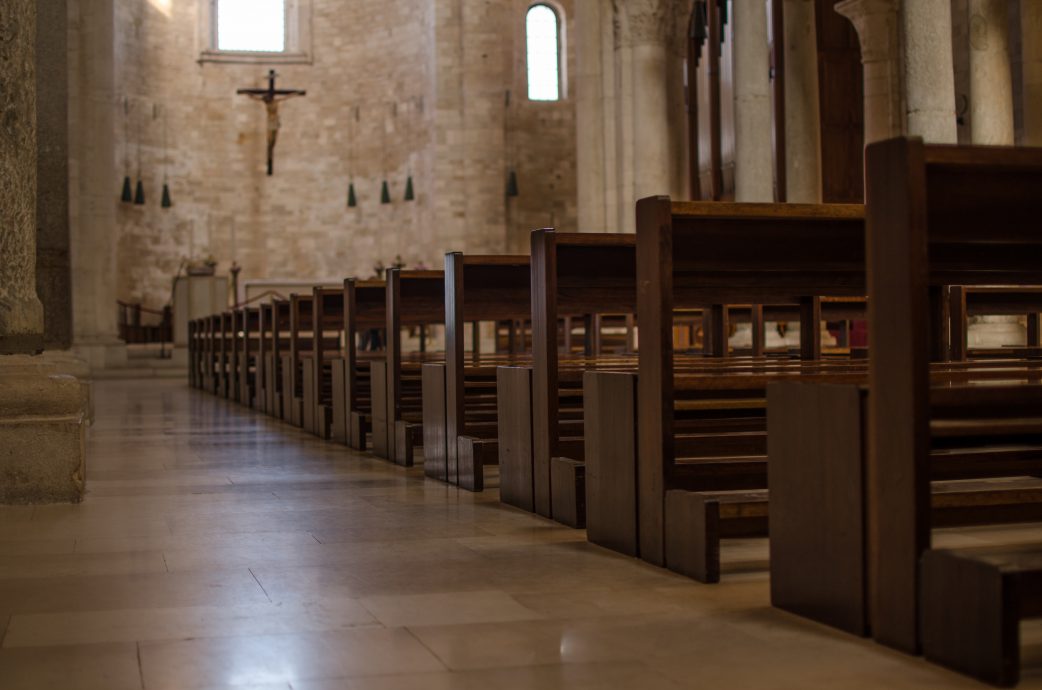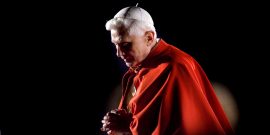Pope Francis' restriction the celebration of the traditional Latin Mass is to ensure the unity of the Church.
The Catholic Church’s Accountability and Autonomy
Editor’s Note: This is part of a Law and Liberty Symposium on the crisis in the Catholic Church.
For at least a dozen years, I have tried to make the case, in academic and other contexts, that the fundamental human right to religious freedom has an “institutional” dimension; that this right belongs to and is appropriately exercised by communities, groups, societies, and associations as well as persons; that the jurisdiction of secular political authorities does not extend to theological and ecclesiastical questions; that religious communities enjoy autonomy – even a kind of sovereignty – with respect to matters of polity and self-government; that a thick civil society densely populated by healthy intermediate societies and associations is essential to political freedom and the common good; and that the idea of the “separation of church and state” should be seen as a constraint on the latter for the benefit of the former. A crucial dimension of the freedom of religion, I contend, is “the freedom of the church.”
Proposing these arguments has been an uphill battle for a number of reasons, including a widespread and growing mistrust of institutions generally, the increasing number of people who are religiously unaffiliated (“the nones”), our individualistic moral anthropology, and the growing appeal of a “spiritual, but not religious” view of the world. And, needless to say, the recent horrifying and heartbreaking revelations, reports, and rumors of sexual abuse in the Catholic Church have supplied additional evidence that, reasonable people could well conclude, cuts against my positions. As Damon Linker put it, writing in The Week, the “monstrous, grotesque ugliness” of alleged and confirmed abuses reveals the Catholic Church “as a repulsive institution.” Respecting the rights of the “repulsive” is, for all of us, a challenge.
I am aware, of course, that journalists and litigators have focused particular attention on religious institutions, especially the Roman Catholic Church; that clergy, including unmarried Catholic priests, are not more likely than other populations to sexually abuse children; that judicious reservation and careful evaluation are appropriate when it comes to untested allegations; and that procedures and policies adopted, in the Catholic context and in others, during the last three decades have protected the vulnerable and exposed abusers.
And yet, there is no denying that colossal errors and inexcusable wrongdoing by religious leaders and clergy call into question the case for church “autonomy” and instead prompt understandable expressions of deep anger and calls for “accountability.” For example, commentator and law professor Hugh Hewitt took to the pages of The Washington Post to call for a full-scale government investigation — by not just one but fifty state attorneys general, and also, for good measure, the Attorney General of the United States — of the Church. Similarly, the spotlight-hungry political strategist Steve Bannon announced to Reuters his plans to form an “independent, non-partisan tribunal” to “look into every aspect of the multiplying scandals.” Several public officials have announced plans to follow the lead of the Statewide Investigating Grand Jury in Pennsylvania. And so on.
Now, it is clear, and it is crucial, that – in accord with due process, of course, and in keeping with important safeguards like statutes of limitations – alleged crimes be investigated, that criminal offenses be punished, that victims are compensated. This is true for bishops and clergy no less than it is for politicians and police or for laymen and citizens. It seems no less clear and crucial that not only repentance and penance but also reform and a reckoning are needed in the Church leadership, structures, and processes.
At the same time, calls for “accountability” should reflect careful thinking about the questions “accountable to whom?” There are matters over which secular political authorities and public officials have no power or say. It is not the business of an attorney general, public commission, or grand jury to influence Catholic teachings on the ordained priesthood or human sexuality. It would be an overreach for any secular investigators to presume, as the Royal Commission on Institutional Responses to Sexual Abuse in Australia did last year, to call for revisions to religious doctrines or to canon law. It was presumptuous (and unconstitutional) during the previous decade when, in response to financial and other scandals, legislators in Connecticut and Massachusetts proposed legislation that would have stripped bishops of administrative authority over parishes and imposed more congregational models of church governance or when people upset about parish-closing decisions turned to courts to second-guess them.
As the Supreme Court reminded us, in its 2012 Hosanna-Tabor decision, when Archbishop John Carroll asked the Jefferson Administration “who should be appointed to direct the affairs of the Catholic Church in the territory newly acquired by the Louisiana Purchase,” then-Secretary of State James Madison’s response was to note the “scrupulous policy of the Constitution in guarding against a political interference with religious affairs[.]” Even in times of scandal and shame, our foundational commitment to the freedom of religion requires that “scrupulous policy” to be followed.



